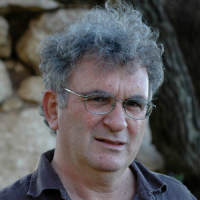A fortnight ago, Recep Tayyip Erdogan, Turkey's prime minister, accused Israel of committing "genocide" against the Palestinians. Speaking before members of his AK Party, the Islamist party that has ruled Turkey since 2002, Erdogan said that the "children of the Holocaust"—the Israelis—had for a century been "systematically" carrying out a campaign of genocide against the Palestinian people.
Erdogan's comment was triggered by the week-long Israeli-Palestinian flareup around the Gaza Strip, which had been set off by months of low-level rocketing by Palestinian terrorists of Israeli border villages and, more immediately, by the March 9th assassination by Israeli aircraft of Zuhir al-Qaisi, the head of the Popular Resistance Committees, one of the armed factions in the strip. (The Israelis said he was targeted because he was busy organizing a terrorist raid into Israel—a "ticking bomb," as it were.)

During that bout of violence, the Resistance Committees and its sister organization, the Islamic Jihad (though apparently without the participation of the Hamas, the dominant Palestinian armed group in the territory), had fired more than 200 rockets into Israel, aimed at the cities of Beersheba, Ashdod and Ashkelon as well as at nearby rural communities. Several Israelis were injured but there were no fatalities.
The low level of Israeli casualties was due to compliance with government instructions to sit out the violence in bomb shelters—which included the closure of schools in much of southern Israel for days on end—and to the effective functioning of the recently-perfected Iron Dome anti-missile missile system, that shot down most of the incoming rockets bound for city centers.
In the Israeli counterstrikes during the week, mostly by manned aircraft and drones, 26 Palestinians died—twenty-two of them terrorists and militants, mostly members of rocketeering squads, killed either before or after launching their projectiles. Four of the Palestinian dead were civilians. The ratio of militant to civilian dead is remarkable, given that the terrorists produce and store their missiles in built-up areas and often launch them from sites next to civilian houses; it indicates that the Israeli military took great pains to avoid hitting civilians. During the week-long exchange, the Gaza Strip's schools functioned normally; unlike Erdogan (and some of its own spokesmen), the Gaza population knows exactly who the IDF targets and puts its faith in the air force's accuracy.
This bout of violence, of course, is but the latest in the countless eruptions that have dotted the Zionist-Palestinian conflict over the past hundred or so years.. It is not a "genocide" by any stretch of the imagination or language. Arabs have been killing Jews and Jews have been killing Arabs for decades—and while it is true that Jews, given their superior skills, have killed Arabs in greater numbers than Arabs have killed Jews, it is not for want of Arab trying. Indeed, if genocidal intentions have been present anywhere in the conflict, it is on the Arab side—or as Abdul Rahman Azzam, the secretary general of the Arab League told the British minister in Amman, Alec Kirkbride, on the eve of the pan-Arab invasion of Israel/Palestine of 15 May 1948, the Arabs' aim was to drive the Jews "into the sea."
Erdogan's description of Israeli behavior toward the Palestinians as "genocidal" is mendacious and inflammatory. And it is mind-boggling in its chutzpah and hypocrisy, given the fact that Erdogan heads a state that has actually perpetrated several bouts of genocide in the not-too-distant past, against the Armenians and, to a degree, against the Asia Minor Greeks between 1894 and 1923.
Turks may dispute the authenticity of this or that document found in foreign archives (their own archives have been thoroughly purged of any trace of the successive stages of the Armenian genocide)—such as the handwritten notes by Ahmet Esat, the director of the Second Branch of the Security Office of the Turkish Ministry of Interior, relating to a meeting of the heads of the Committee of Union and Progress, the group that ruled Istanbul, in January 1915 that set in train the massacres ("Apply measures to exterminate all males under 50, priests and teachers, leave girls and children to be Islamized… Kill off in an appropriate manner all Armenians in the army…")
But there is no disputing the testimony of the many thousands of Armenian and Greek survivors of the murderous "deportations" or of the American missionaries, and the reports by German and British and American consuls and businessmen (and the occasional Turkish "traitor") who recorded what happened in real time during the horrific massacres, which resulted in between 1.5 to 2 million dead Armenians and Greeks.
Turkish officialdom may publicly dispute this historical reality and, in an effort at browbeating, may threaten and even cut off relations or contacts with this or that country—as it recently did with France when the French parliament introduced legislation to prohibit Armenian-genocide denial. But the Turks know. And their acute sensitivity regarding the genocide charge is probably a good indication of their knowledge about what their forefathers did a few decades ago. Charging others with genocide may simply be a defense and denial mechanism. In Erdogan's case, traditional Islamic antipathy towards "the Jews"—"a base" people and "murderers of prophets," as the Koran puts it in one of its suras—may also play a role.
Up-front honesty may be shooting for the stars. But surely we are entitled to a measure of humility and contrition from the Erdogans of this world—or at least their silence.





